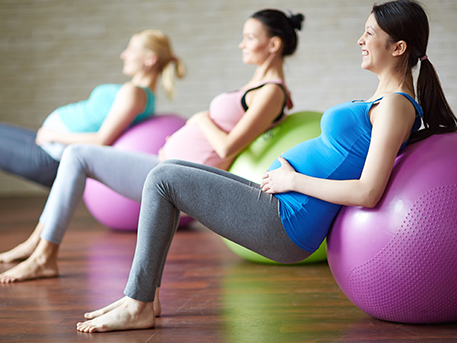Excercise during preganancy
Pregnancy is a unique and special time in a woman’s life. You may have heard the age-old myth that exercise during pregnancy is not safe. However, exercising during pregnancy is one of the best things you can do for yourself and your baby. As a personal trainer based in Letchworth, I am here to explain the many benefits of exercise during pregnancy and provide essential information on how to approach fitness safely.
Pregnancy is not a time to focus on performance or heavy lifting. It is a time to focus on maintenance and keeping your body strong and healthy. Exercise can help reduce many pregnancy-related symptoms such as back pain and varicose veins. Moreover, regular exercise increases your endurance during labour and may shorten the time spent in active labour, reducing the need for forceps or caesarean section.
Exercising during pregnancy can also provide numerous psychological benefits, including increased confidence, better sleep, and improved body image. Social interaction with others is also beneficial during pregnancy, particularly if you are feeling isolated. Attending a class or going to the gym can help you connect with others going through a similar experience.
Exercise during pregnancy is not only beneficial for mothers but also for their babies. Regular exercise can increase the oxygen supply to the baby, leading to a healthier, leaner baby.
However, pregnant women may have some questions, such as whether exercise increases the risk of miscarriage or if it's harmful to the baby. While some exercises should be avoided during pregnancy, exercise in general is safe and provides numerous health benefits to both mother and baby. Pregnant women may experience fatigue or sickness, but moderate exercise can actually help reduce those symptoms.
It's important to know which exercises to avoid and how to listen to your body. Strengthening pelvic floor muscles is essential, but too much strength can make labour more difficult. During pregnancy, the hormone relaxin is released, which relaxes ligaments in the pelvis to make room for the growing baby. This can make joints more vulnerable to injury, especially in the lower back. Proper form and caution during stretching are essential to avoid injury.
It's also essential to maintain proper nutrition and glucose levels during exercise. Regular snacks and avoiding exercise within one to two hours of eating can help maintain glucose levels. Pregnant women should avoid exercises that involve lying flat on their back after 16 weeks of pregnancy to prevent supine hypotensive syndrome, which can cause dizziness and loss of consciousness.
In conclusion, exercising during pregnancy provides numerous physical and psychological benefits for both mother and baby. However, it's important to approach exercise safely, knowing which exercises to avoid and listening to your body. As a personal trainer in Letchworth, I am here to guide you through a safe and effective exercise routine during pregnancy. Don't hesitate to ask for advice and tips to help you stay healthy and strong during this special time.

